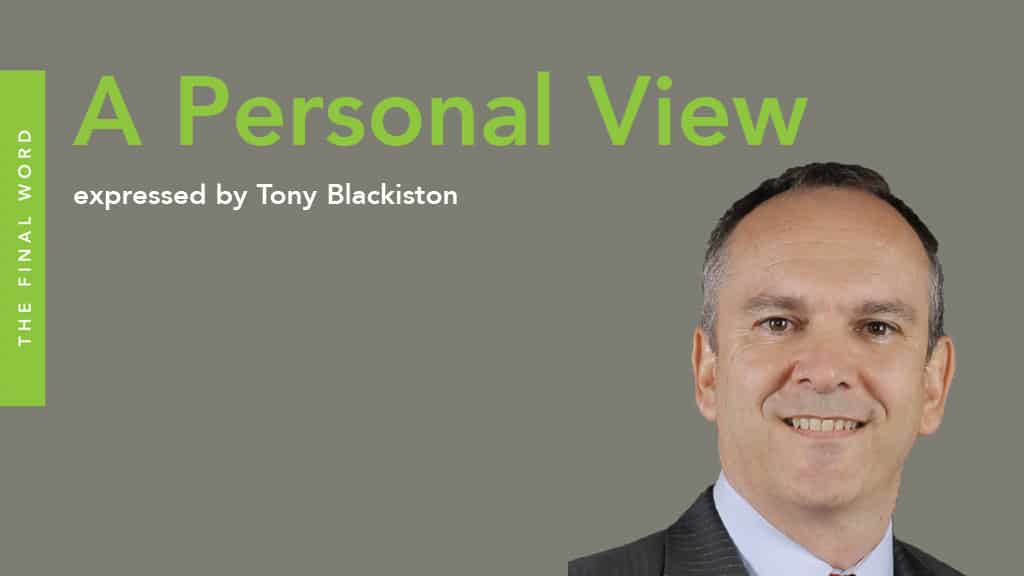I’m sure you have all looked at your operations recently and asked, “how can we survive this pandemic and be more efficient, effective and adapt to the new norm?”. Aircraft are not flying, passenger numbers have plummeted, and governments are changing the entry/exit rules almost daily. The industry is unrecognisable and, in certain areas, so is the provision of aviation security. There is a huge global loss of security experience caused by forced redundancies and the associated redistribution/amalgamation of the roles of the surviving staff, which may have to include non-security duties. Generalists are now performing specialist roles in aviation security.
Despite these strange times, most still agree that security and safety are two vital ingredients to restore passenger confidence and restart the industry. Contracts with security service providers have been ripped up, airline and airport security departments have downsized and the role of security staff has increased to include biosafety.
Who is monitoring the changing role of security staff? Regulators, airlines and airports around the world are showing a new willingness to rely on non-contact, computer based or social distancing audits, quality assurance and compliance practices. These quickly approved amendments can involve new non-face-to-face practices, virtual site assessments and a greater reliance on self-assessments to fulfil regulatory or mandatory certifications in the short term. This may be acceptable but in the long term there need to be corresponding changes to regulatory oversight and the introduction of appropriate quality assurance practices to reflect new procedures. These changes are neither universal nor consistently applied. In reality, nothing has changed in certain parts of the world or, where new procedures have been applied, they may still be inadequate, leaving huge vulnerabilities once the world joins up again. I may be exaggerating the problems ahead but remember, “a false sense of security is the only kind there is” (Michael Meade).
Governments and ICAO have responded to the dire straits the industry is in, but only time will tell whether enough is being done to manage these vulnerabilities. To be fair, we have seen some encouraging signs from ICAO in the form of the Council Aviation Recovery Taskforce (CART) guidelines and evidence of some governments working closely with aviation stakeholders. However, these actions are often too little, too late and too restrictive to allow industry to re-engineer their processes. CART provides the global guidance for a safe, secure and sustainable restart and recovery but it needs state-level commitment to truly embrace the changes and to harmonise the new processes.
It is therefore important with all these changes that we think of security as part of the overall restart process. Already we have seen screening point infrastructure changes, greater use of contactless touchpoints during immigration and security processes, improved passenger data usage (or is it just collection?) and improved government agency cooperation. Let us not forget these changes are not being driven by a need to improve security but are a response to the pandemic. Regardless, they provide an opportunity to reassess security processes for the benefit of the industry. Security practitioners must be involved in the decisions being made now and moving forward.
Vaccine aside, there are patches of hope; for example, the uptake of digital solutions in the industry, cargo refits to passenger planes in response to demand, and the overdue introduction of technology that has been around for years, such as biometrics. We have also recently seen the adoption of new contactless technological solutions and some new financing models and creative re-financing, leading to opportunities for governments to enter or re-enter the industry and for bullish entrepreneurs to pick through the remnants of the industry – leading to more disruption and new opportunities.

Quality assurance, compliance checks and supervision/oversight have been the cornerstone of our defence against unlawful interference with aviation. These should not be tick-box exercises but meaningful, outcome-focused, risk-based, intelligence-driven and industry-inclusive activities that encourage a positive security culture and outcome. Common sense? Prior to the pandemic, many areas of our industry never reached this point. Instead, there was a prevalence of prescriptive measures to solve broad global problems without taking into account the local environment, individual strengths and risk tolerance. It was all about mitigating that single problem, often by adding measures on top of measures. I strongly dislike the ‘layers of the onion’ analogy in security, where additional security measures are added to the original measures as new vulnerabilities are identified – we now have an opportunity to completely review and change the process/technology/infrastructure from the start of the process to manage risks appropriately, and that doesn’t always mean adding more measures! Work smarter – not harder.
Now, during the industry restart, is an ideal opportunity to position security as a vital piece of the jigsaw. Therefore, instead of simply asking how we can survive the pandemic, aviation security professionals should be taking the opportunity to ask, “how can we change our processes to ensure there is a comprehensive, flexible and cost-effective security apparatus in place that is based on risk, that will build public confidence and that will make civil aviation viable, safe and secure?”.
